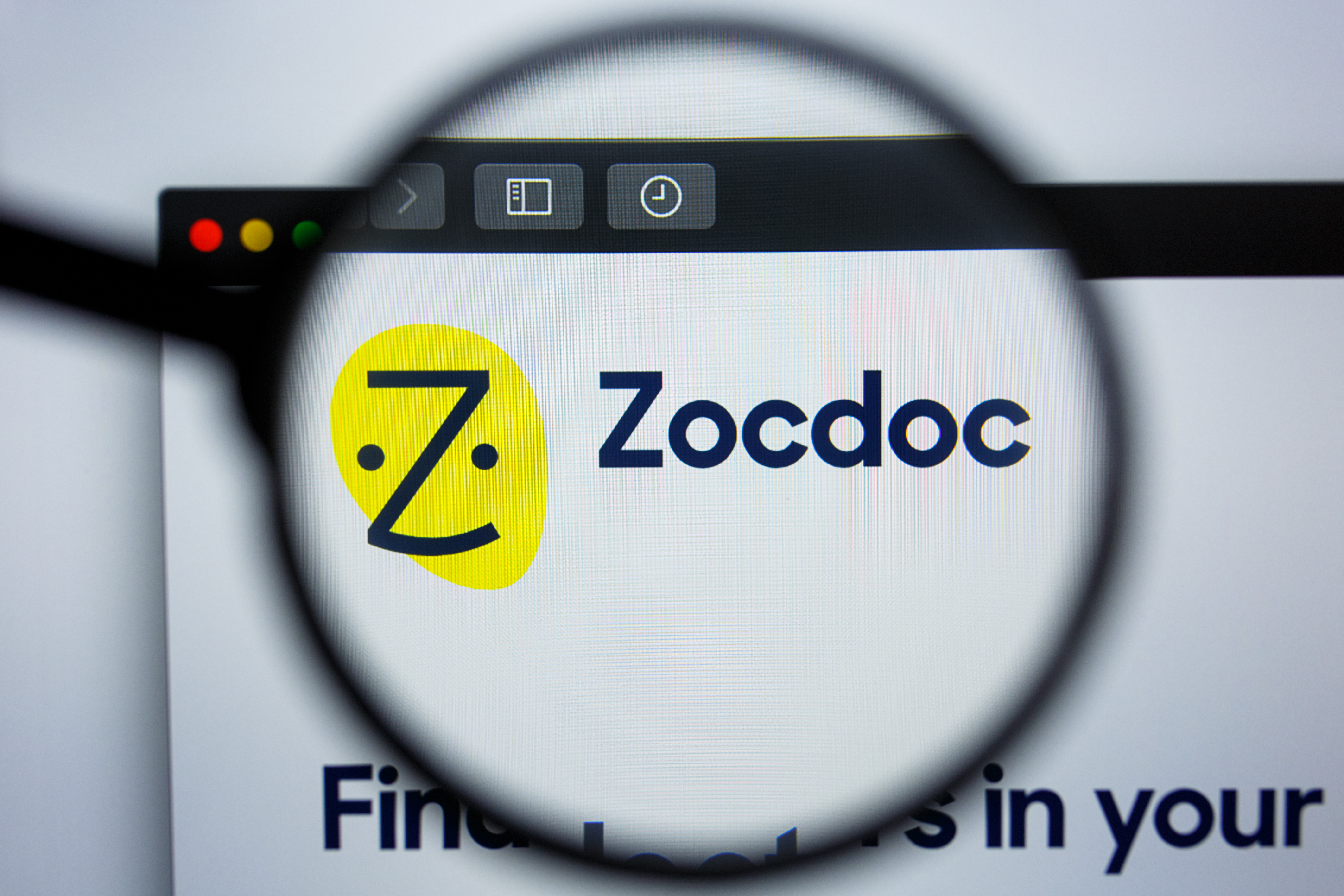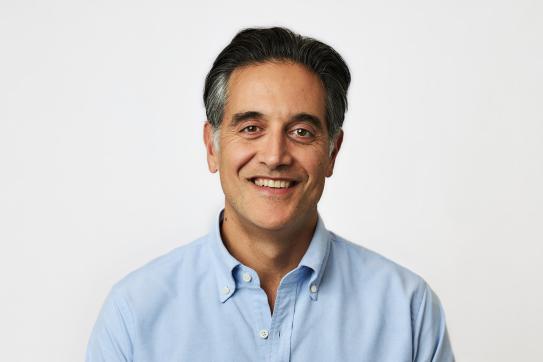Inspiration for successful, innovative business ideas can come from many different sources. Often, it’s highly unpleasant experiences that drive innovation, which was certainly the case for Zocdoc. “I was flying from Seattle to New York with a bad sinus infection,” recalls Cyrus Massoumi ’03, co-founder and former CEO of Zocdoc. “I ruptured my eardrum when the plane landed, and I needed to see a specialist. I went to my insurance company’s website and started calling down a list of doctors. Some phone numbers didn’t work; some doctors were no longer taking that insurance; one doctor had died.” Massoumi thought there had to be a better way to find healthcare. “Why shouldn’t people be able to book a doctor the same way they book everything else?” he says.
Founded in 2007, Zocdoc allows people to go through a list of physicians and choose one based on patient ratings, accepted health insurance, and available appointment times — and then book the appointment. Initially, the site listed only dentists but now includes practitioners in over 50 different medical specialties across the country.
The issues of healthcare access and equity have always been vitally important to Massoumi. His mother had wanted him to be a doctor, telling him, “Then you’ll always have access to healthcare, and that’s the most valuable thing in life.” Massoumi, who left Zocdoc in 2015, has just one major regret: “Zocdoc is great for those who have healthcare coverage. But what about healthcare access for those who can’t afford it? We never really had a good answer for that.”
Massoumi’s newest venture, Dr. B, aims to address that issue. Dr. B was launched during the pandemic, specifically to help people find access to COVID vaccines when those appointments were often difficult to get. “We built the site in a very short time, and it became the nation’s wait list,” he says. “We hoped to make sure that no doses of vaccine were wasted and that they went to the people who needed them most.” Once COVID vaccines became readily available in local pharmacies, the wait list aspect of Dr. B was no longer vital. But the site has greatly evolved since then, expanding on Massoumi’s commitment to healthcare access and equity.

“The pandemic changed a lot of healthcare regulations; specifically, it made it easier for people to access different modalities of telehealth,” Massoumi explains. “Many patients know what they need but don’t have access to a doctor’s appointment.”
While Zocdoc and Dr. B both connect patients with healthcare, Dr. B more directly addresses the issues of access and equity. “That’s where asynchronous telemedicine comes in,” Massoumi explains. "We enable patients to go online and complete a comprehensive health assessment. Next, a vetted medical provider from the patient’s state reviews their health information and decides if the patient is a candidate for prescription treatment. If a prescription is appropriate, it’s immediately sent to the patient’s pharmacy of choice for pickup. Most of the time, that happens in under an hour, in all 50 states.”
Dr. B charges just $15 for this service, which is less than the typical insurance co-pay. “And if someone can’t afford $15, we treat them at no cost. This is the first and only telehealth platform in the country that treats every patient regardless of their ability to pay,” Massoumi says proudly. “We can do that because of the updates in healthcare regulations that enable super-efficient telemedicine.” Dr. B is now one of the largest providers of COVID treatments like Paxlovid in the country. The site also offers treatments for more than 20 common conditions including high cholesterol, flu, migraine, and urinary tract infections.
Zocdoc and Dr. B are among Massoumi’s great successes. But the entrepreneur’s first Internet startup, an early e-commerce site, failed. “That’s what brought me to Columbia Business School — being a failed entrepreneur,” he says. “I knew I wanted to try again, but my confidence was shaken. I didn’t have the venture capital I needed, and my friends with MBAs were better at raising capital.”
Columbia gave Massoumi access to a network that’s still a vital part of his businesses. “When I started Zocdoc, there were only a handful of investors, and I didn’t have access to them,” he says. “The only people who were willing to bet on me back then were people I knew from my academic career — most of those were my Columbia classmates. Many of the earliest angel investors in Zocdoc and in Dr. B are people from my business school class. They’ve been instrumental in capitalizing but also in marketing, and many of the earliest employees have also been classmates.”
He notes another way CBS was helpful: its prime New York City location. “Among my favorite classes were the ones where students had the opportunity to interact with local business leaders.”
Massoumi created a formula for success at Zocdoc that he says has remained a template for his subsequent ventures. “The formula is: great people, hard work, focus, and time — meaning that a great team, laser-focused on problems and working hard, will eventually get it. I feel that anything I do that has these four elements has a higher probability of being successful.”
But the idea of failure doesn’t faze Massoumi. “If you never fail as an entrepreneur,” he says, “chances are you didn’t take big enough risks. Inevitably, you learn more from failure than you do from success.”
Having founded two successful health tech startups, Massoumi says he’s adamant that any telehealth projects he undertakes in the future must provide access for all. “That’s something I’m very passionate about,” he says. “As someone who is innovating in healthcare, I feel some personal responsibility for making sure the whole country receives care. The gap seems to be getting bigger, not smaller. Healthcare technology is where the rules can be rewritten.”
